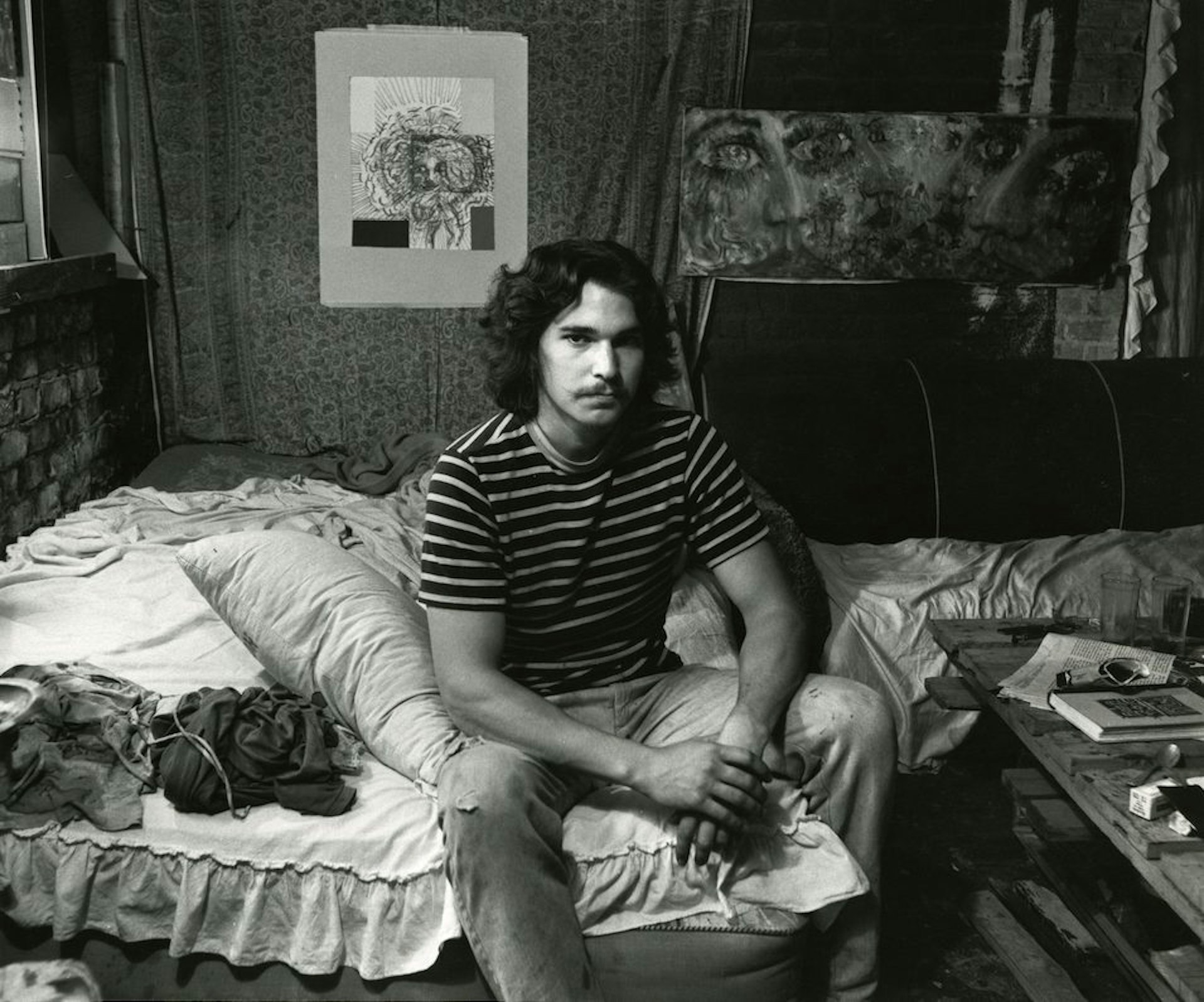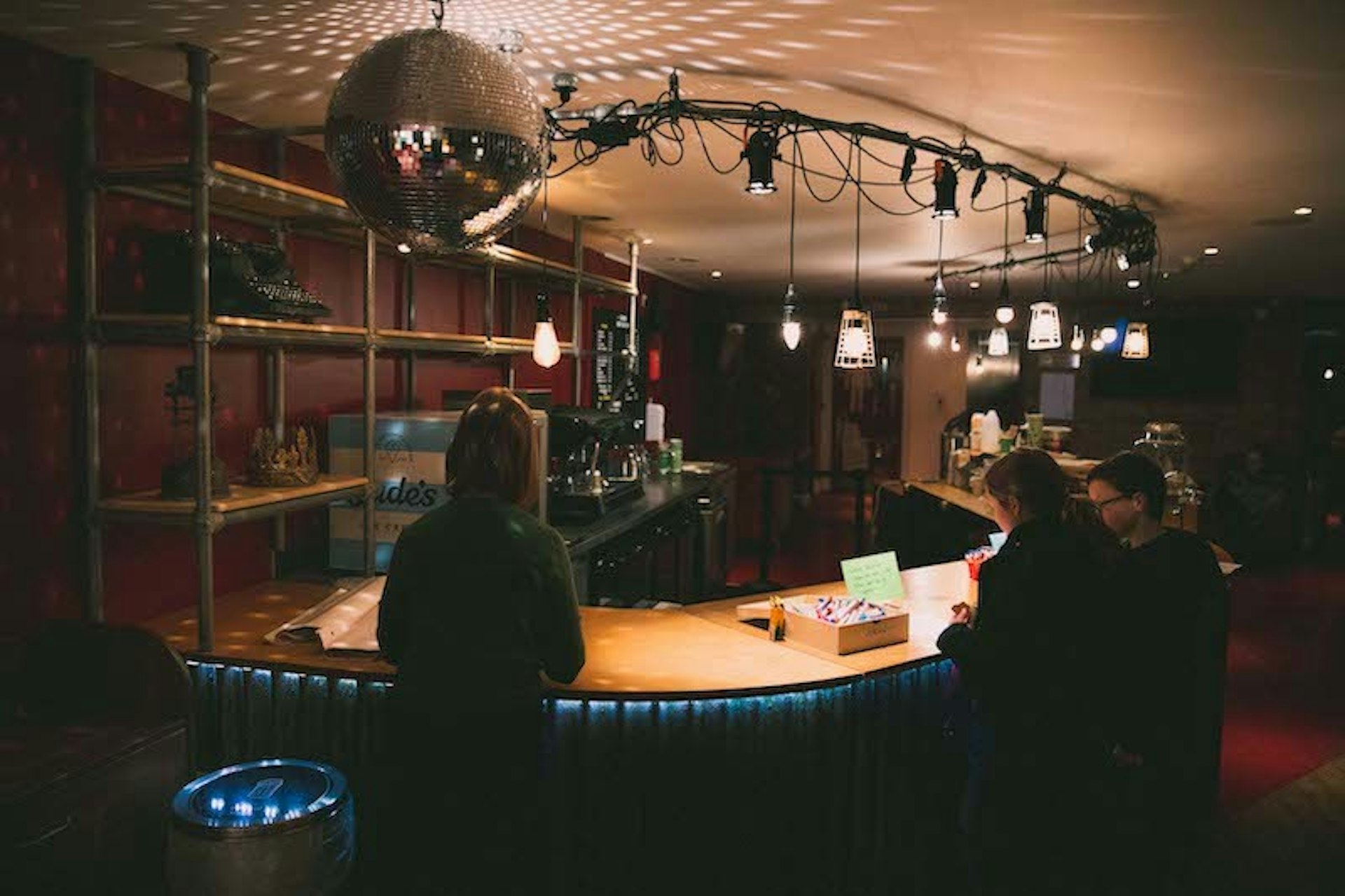
Inside the Stratford theatre being used as a warm bank
- Text by Ben Smoke
- Photography by Theo McInnes
“Cut up food into smaller pieces to cook quickly” and “draught-proofing can save £20 per year on your energy bills” are two of many tips that appear on a leaflet on how to cut energy usage this winter. The greyish blurs across pixelated words indicate this leaflet has been photocopied many times. The slightly skewing alignment of the text points to a rush job, which would make sense. There are piles of them available at Royal Shakespeare Company’s The Other Place in Stratford-upon-Avon – a theatre and café space mostly used for workshops and conferences that, once a week, transforms into a “warm bank.”
There’s a cognitive dissonance between the austere content of the handout and the relative lavishness of the space. The main area, under a vaulted atrium strung with fairy lights, includes coffee and tea facilities and a collection of tables and chairs. There’s free WiFi and workshops encouraging those who come to use the space to get involved with the theatre. The Other Place has been closed to the public as the RSC continues to reel from the pandemic and cuts to the creative industries, but workers advocated for it to be reopened as a space for members of the community to socialise and take shelter from the cold.
The Other Place is one of 4,322 warm hubs across the UK listed on the site for Warm Welcome – a campaign set-up in response to the cost of living crisis, which has coordinated much of the effort. Well known for its connection to Shakespeare, Stratford-upon-Avon is a fairly affluent area. The town, which has a population of around 30,000, has relatively low poverty levels. Of the 316 local authorities in England, Stratford-on-Avon is ranked as 269th most income deprived, with none of its 73 neighbourhoods being among the 20 percent most income deprived. Over a quarter (27) of its neighbourhoods were in the top 20 percent least deprived. But even here, as the cost of living crisis continues to bite, there is a desperate need for support.
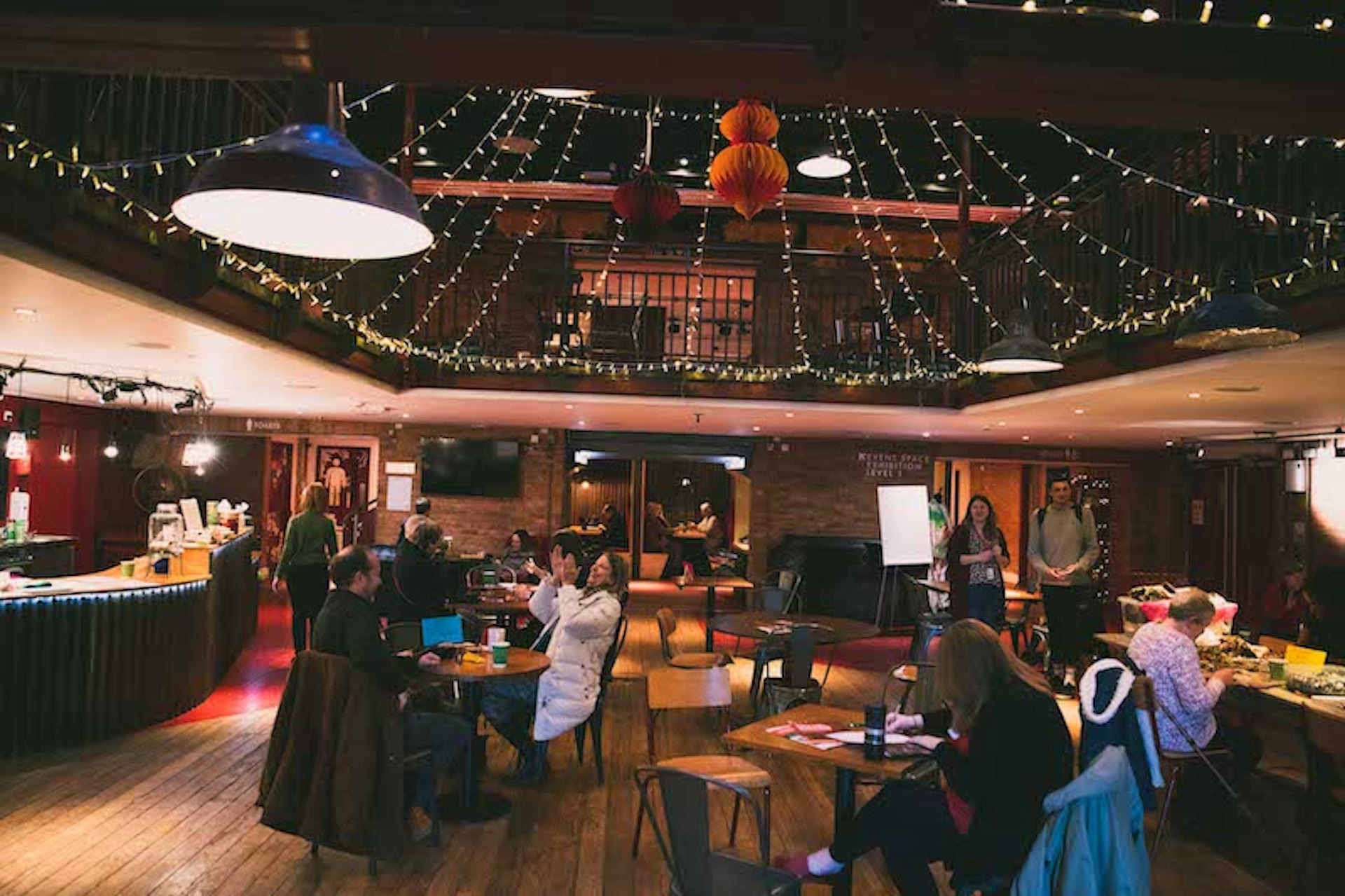
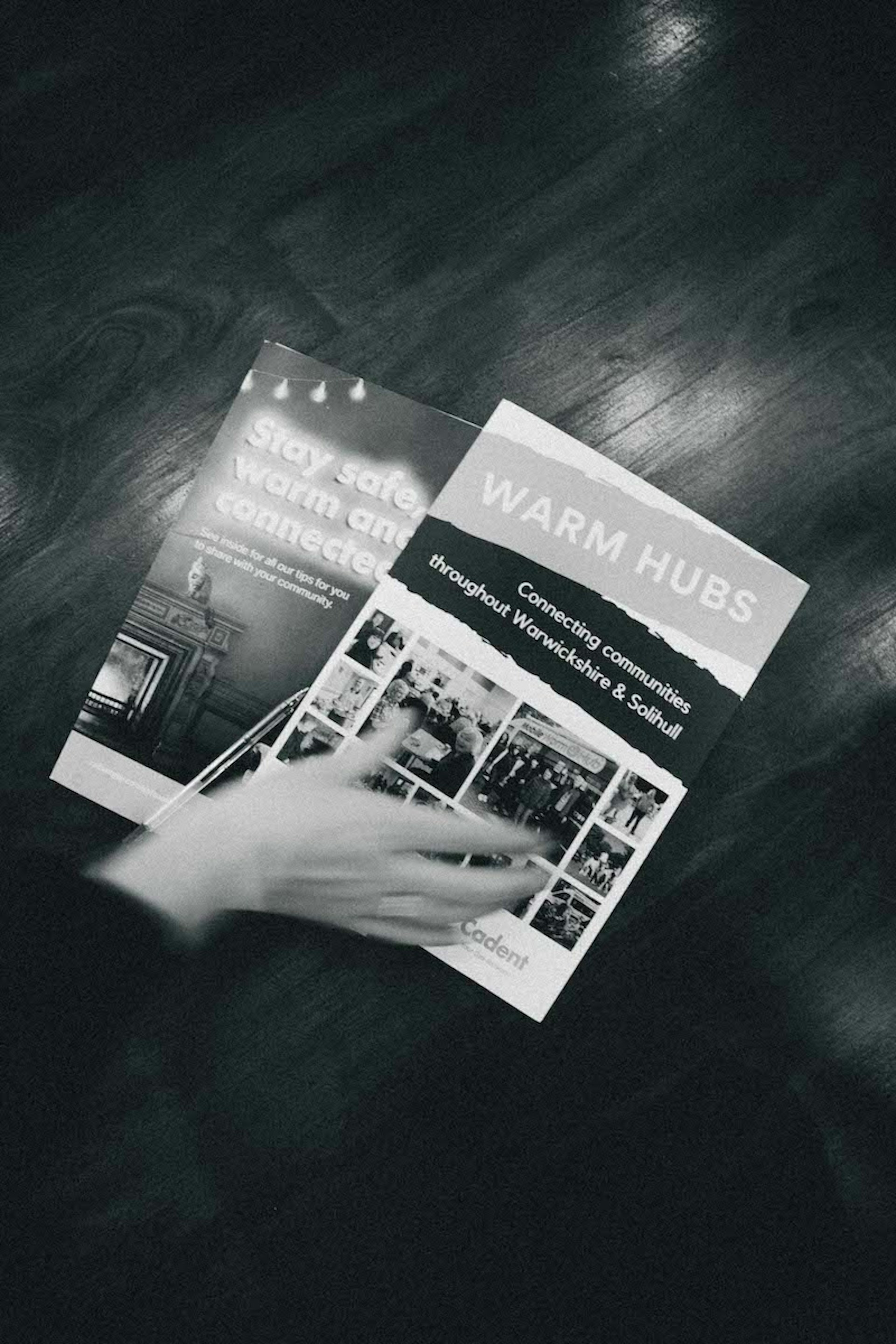
“There was lots of stuff on the news about the cost of living crisis and post-pandemic isolation, and Martin Lewis I believe even joked about how, in the future, we’re going to be at the point where communities are going to need warm banks like we have food banks,” Nicki Salmon, Creative Placemaking Manager at the RSC tells me as we sit at a table drinking coffee. “Of course, that is now the case.”
According to stats provided by Warm Welcome, each space has had an average of 32 visitors a week for 2023, putting the weekly average number of people accessing warm banks in the UK at 138,304. For context that would equate to the entire city of Preston accessing a space for warmth at least once, every week, this year.
The United Kingdom is generally accepted as being the fifth richest nation in the world. The gross domestic product of the economy was around £2.2 trillion in 2021, coming in behind the United States, China, Japan and Germany. There is, demonstrably, unarguably, irrevocably money here. And yet for many, and in a crowded field, this winter has been one of the worst in living memory. As the UK has emerged from the pandemic, following a decade of swingeing cuts to services and rollbacks of the welfare state, coupled with the impact of Putin’s invasion of Ukraine, a perfect storm has formed.
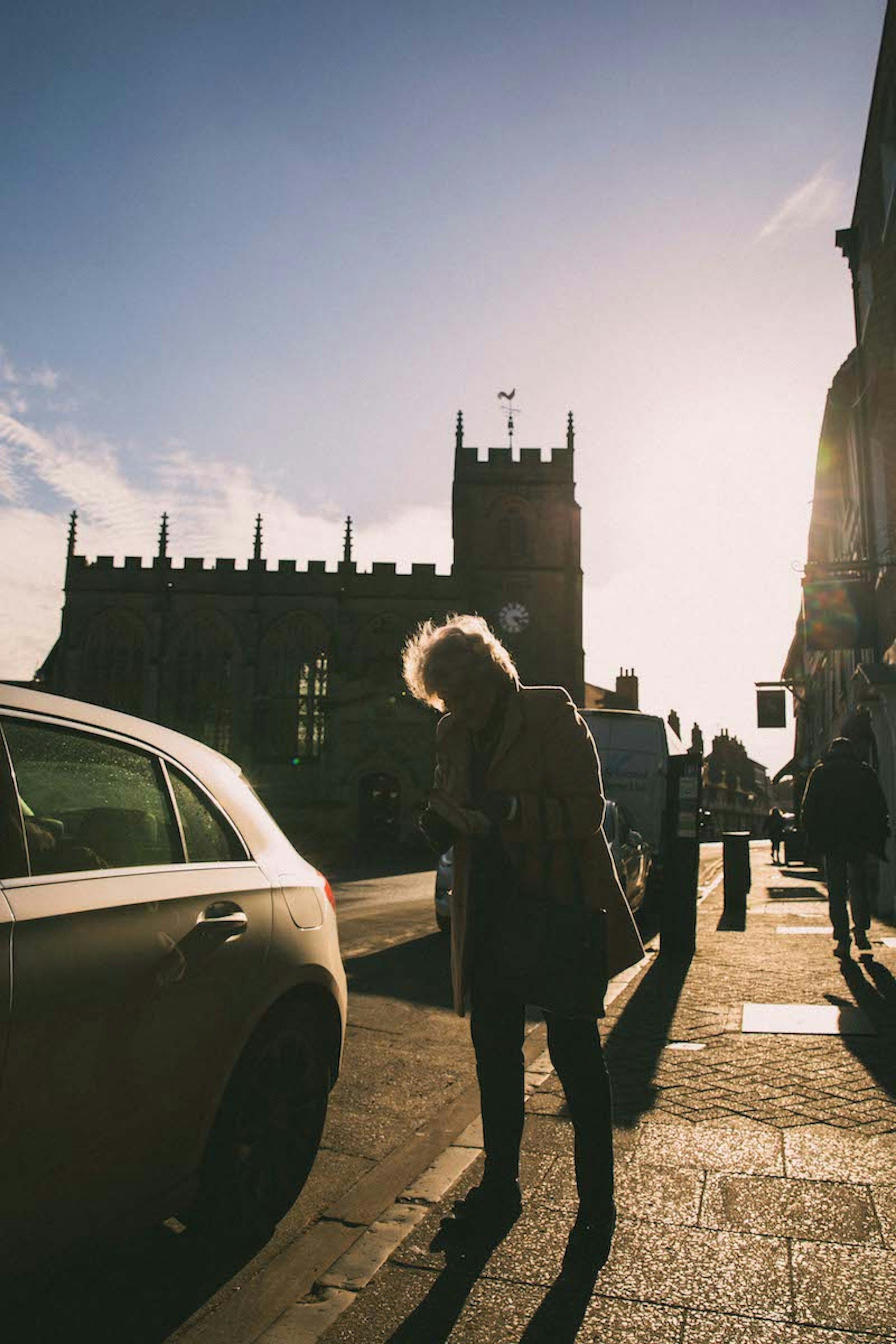
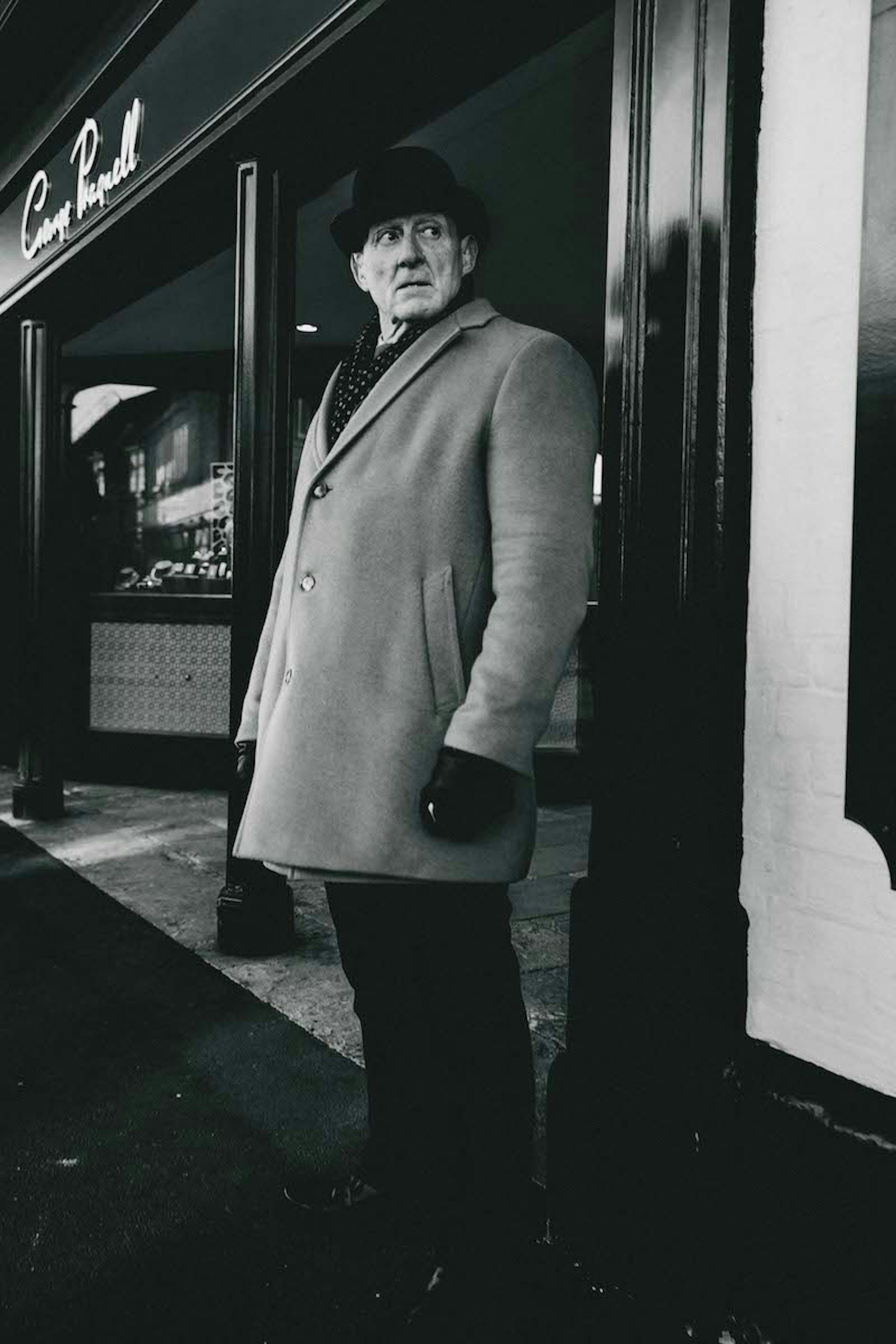
According to the Office of National Statistics, 94% of adults reported an increase in their cost of living in January 2023 compared to the year before. Real disposable income will drop by 4.3% in 2023 – the biggest fall in living standards since the 1950’s as inflation remains at historic heights and energy bills will increase (again) in April. In the six months leading up to September 2022, food bank use was up 52% compared to 2019 (figures for the winter months will not be published until later in the year).
The winter months, despite being milder than normal, have forced many to breaking point. The government has spent millions on ad campaigns advising people on how to lower their energy bills while failing to provide adequate support to households. Meanwhile, many have been forced to choose between heating their homes and eating.
“I have a full time job, my husband is a teacher, and we are constantly thinking about money. Shall we put the heating on today? Should we go somewhere free?” Nicki tells me, “For more and more people these questions are not as cut and dried as they were even last year.”
This is why Nicki, who has been with the RSC for the majority of her working life, starting as an usher and gradually moving around the company before taking on her current role, took a proposal to the theatre company to open up The Other Place.
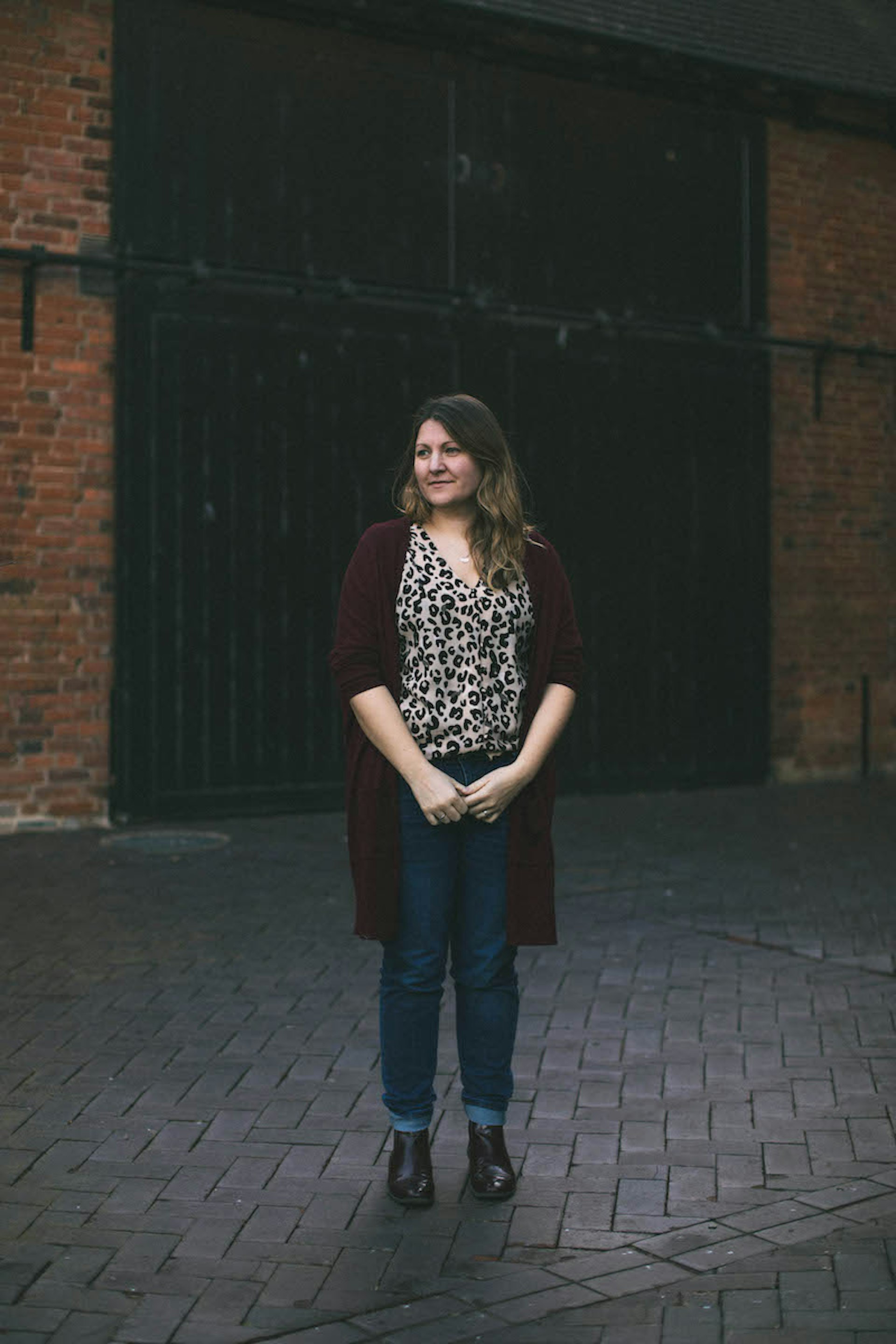
Nicki Salmon, Creative Placemaking Manager at the Royal Shakespeare Company.
The studio theatre was opened in 1974 in a tin hut on the banks of the River Avon, just down the road from the company’s world famous Swan Theatre. Redesigned and reopened in 1991 the theatre has gone through several different iterations before its current one as a creative hub for learning, research and development, complete with café bar, rehearsal rooms and a 200-seat studio theatre.
“It’s got a gorgeous atmosphere,” Nicki says. “There’s something in the bones of this space that makes it feel really welcoming, which made it just feel right to open it up to the public.”
Part of Nicki’s job is to work out how to engage people from the local community in theatre and storytelling. For her, the warm bank has provided an opportunity to connect with many of those she would usually have difficulty reaching. People are free to come here without declaring their reason for doing so – the relative anonymity, they hope, meaning more will feel able to use the space without being put off by feelings of shame.
Some of those who have visited include Asylum Seekers who are being housed at a nearby hotel who would otherwise have nowhere to go outside of the cramped conditions within it. Nicki talks excitedly about projects she runs with some of them, the cultural exchanges that have taken place, and the confidence it has given some of the participants. It’s hard not to be infected by her enthusiasm and love of this space and community.
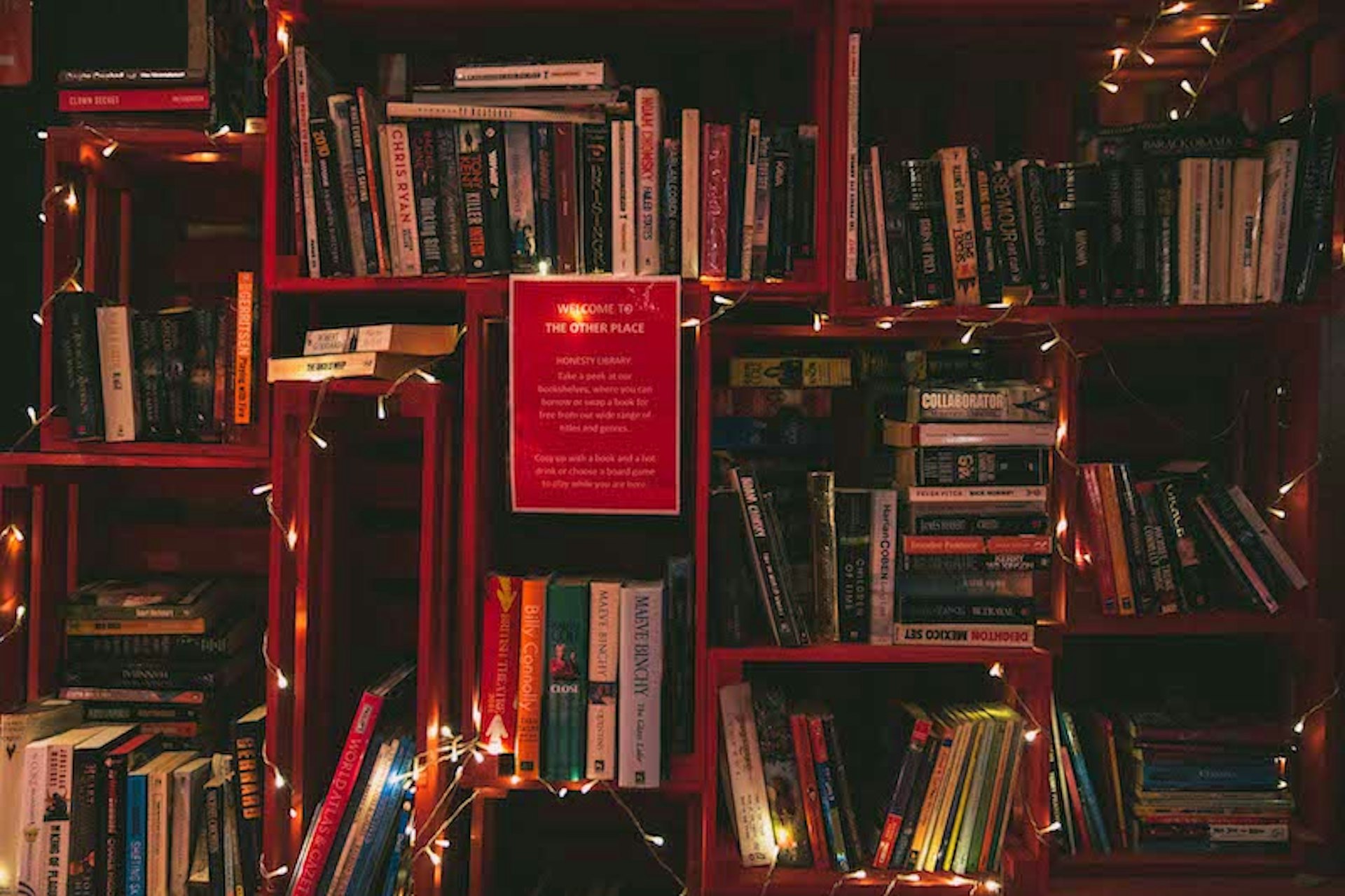
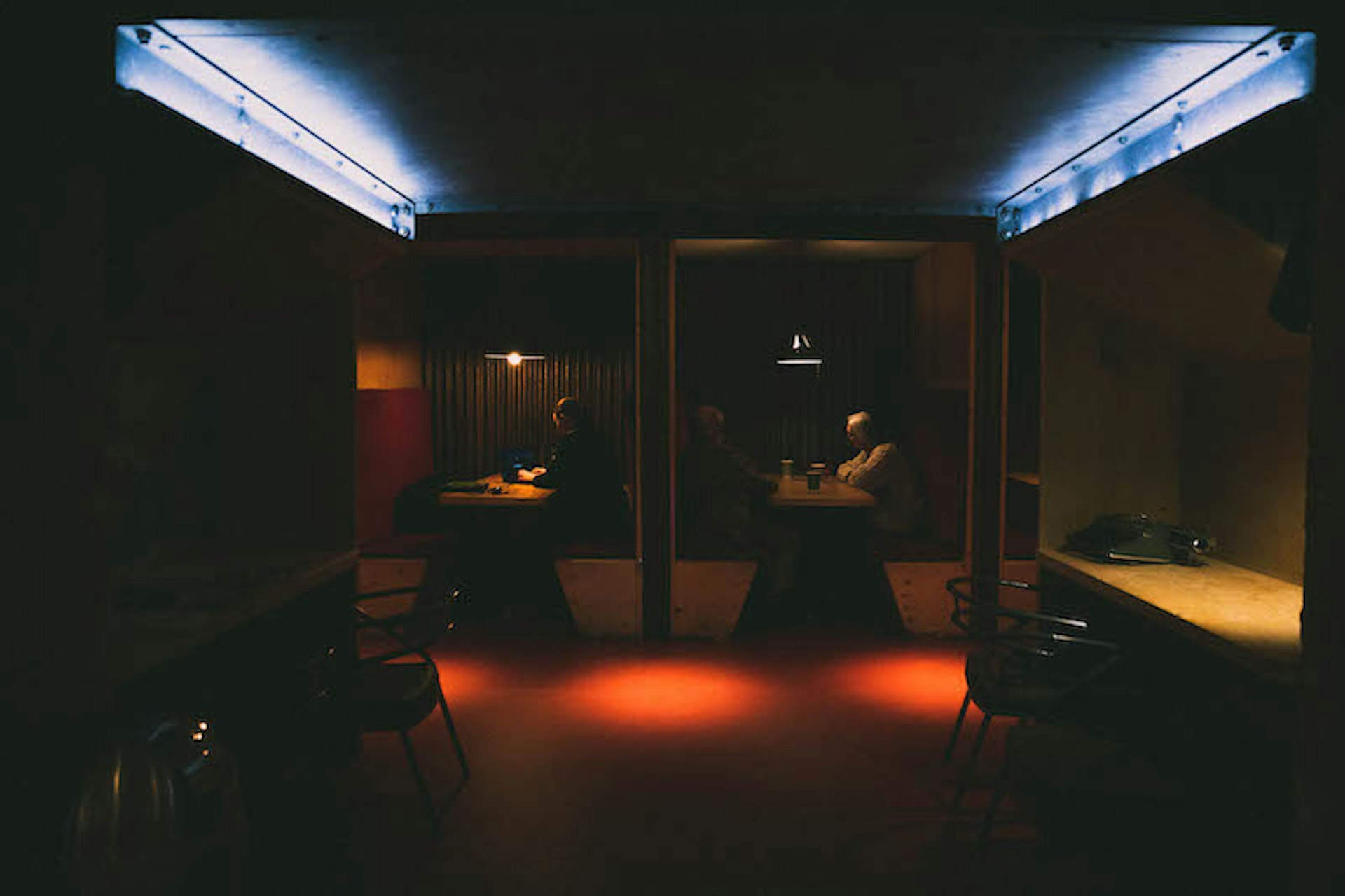
The theatre resides squarely in the constituency of Nadhim Zahawi, who has represented the community since he entered Parliament in 2010. After serving as Chancellor of the exchequer from July to September 2022, Zahawi was chairman of the Conservative party until January 29th of this year. He was forced to resign after failing to disclose that he was being investigated by HMRC for his tax affairs. Zahawi was later found to have underpaid his taxes, with the estimated settlement with HMRC reported by the Guardian to be £3.7m. This is not the first controversy Zahawi has found himself at the centre of. In 2013 he was found to have “mistakenly” used taxpayers money to heat his horses stable.
Looking down on The Other Place from the mezzanine, just by a makeshift play space for children of parents who can’t afford to heat their homes, it’s hard not to feel angry. For all the good this space is doing, all the shelter it provides and opportunities for dedicated people like Nicki to bring communities into the arts, you can’t help but feel sick that a space like this not only exists, but is replicated across the country. That a man who can accidentally not pay millions in tax can “represent” those who are forced unto the charity of spaces to simply feel warm in a country that could spend a thousand lifetimes counting the wealth it accrued in one year.
Though spring is round the corner, the last icy grips of winter make these spaces invaluable to the survival of many thousands across the country, but their existence is a stain upon our society. When the last frost melts, it’s beholden upon all of us to fight with everything we have to ensure no one needs these spaces when it returns.
Follow Ben on Twitter.
Enjoyed this article? Like Huck on Facebook or follow us on Twitter.
